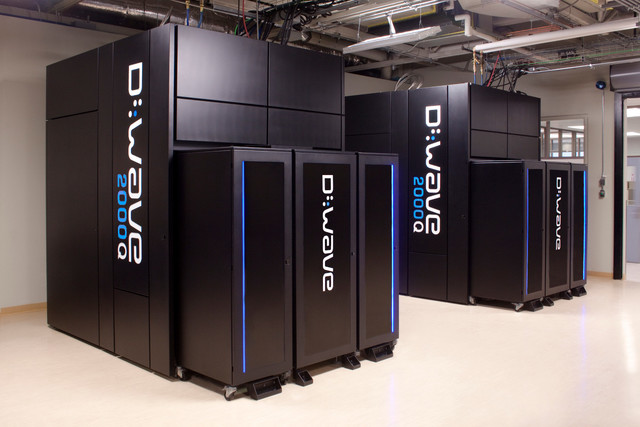 EMERGING TECH
EMERGING TECH
 EMERGING TECH
EMERGING TECH
 EMERGING TECH
EMERGING TECH
Quantum computing company D-Wave Systems Inc. is opening up access to its systems with the launch of its new, free Leap Quantum Application Environment.
Leap provides real-time access over the cloud to D-Wave’s quantum computers for the first time. The idea is to make quantum computers accessible to developers so they can begin building an ecosystem around the technology by writing and testing new software applications, the company said.
With the Leap QAE service, D-Wave is providing one minute of free access to one of its D-Wave 2000Q quantum computers, meaning that anyone can submit and run the applications on the system and see the results in just seconds. One minute might not seem like much, but D-Wave insisted it’s enough to run between 400 and 4,000 problems, thanks to the speed at which its system can perform calculations. Users can also pay for more time if they wish, with pricing starting at $2,000 per hour.
To help developers get started, the Leap service provides a range of open-source development tools, interactive demos and coding examples, educational resources and knowledge base articles. Developers can also use Leap’s Ocean software development kit, which comes with built-in templates for algorithms.
D-Wave is known for its claim to have built the world’s first working quantum computer, which went on sale in January 2017 when it sold its first system for $15 million to cybersecurity firm Temporal Defense Systems Inc.
Its machines work by storing information using “qubits,” which encode information using 0s, 1s or both at the same time, as opposed to traditional computers, which use “bits” and only encode information using 0s or 1s. By using qubits instead of bits, D-Wave claims, its quantum computers can “manipulate enormous combinations of states at once,” making them far more powerful than their nonquantum cousins, at least for certain applications.
The company boasts on its website that its systems are the “most advanced quantum computers in the world,” but it isn’t alone in the space and its rivals have in the past scoffed at those claims.
Those rivals include IBM Corp., which also has a quantum machine up and running and provides free access for academic researchers via its Quantum Experience service, which was launched in 2016. More recently, Chinese public cloud computing company Alibaba Cloud, a subsidiary of Alibaba Group Holding Ltd., launched its own quantum computing service in partnership with Chinese Academy of Sciences.
All three companies’ quantum computing systems are based on quite different architectures, so it’s not clear which one is truly the most advanced. In any case, D-Wave seems to be trying to move beyond that argument by targeting developers to help create an ecosystem around its technology.
“While we continue to advance our industry-leading quantum technology, our goal with Leap is to ignite a new generation of developers who will explore, experiment, and ultimately build our quantum application future,” Vern Brownell, D-Wave’s chief executive officer, said in a statement.
Analyst Holger Mueller of Constellation Research Inc. said D-Wave’s offering was interesting because developers need this kind of access to take quantum computing forward.
“Quantum reminds us of the beginning of computing,” Mueller said. “You need the hardware, and then you need the software tools and platforms to build applications. As usual, the concern of CxOs will be about lock-in, but as the upside of quantum applications is so promising that this might initially accepted.”
The Leap QAE service is available now.
THANK YOU